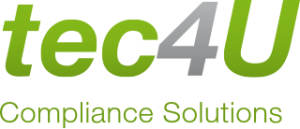How you contribute to the Green Deal with the Digital Product Passport
The European Commission’s Green Deal aims to reduce CO2 emissions by 55% by 2030 (compared to 1990). In order to achieve this, the scope of the previous Ecodesign Directive was extended by the Ecodesign Regulation (Regulation (EU) 2024/1781; ESPR for short), which officially came into force on July 18, 2024. An important component of this is transparency towards authorities and the public.
The legislator therefore requires companies to create so-called digital product passports for specific product groups in future. In this context, tec4U-Solutions is already working with the leading protagonists of the automotive industry in the Catena X network on the creation of standardized data and information flows along the entire value chain to develop and trial Digital Product Passports: www.catena-x.net
Ecodesign Regulation Requirements
According to the new Ecodesign Regulation (Chapter III, Article 9), “products may only be placed on the market or put into service if a product passport is available […]”.
Depending on the type of product, the specific content of the product passport will be successively regulated in the coming years as part of delegated acts. In principle, the product passport (in accordance with Art. 7 and Annex III ESPR) can contain the following content, among others:
Package of advantages in DataCross –
Module Digital Product Passport
How will DataCross support you concerning Eco Design?
By using DataCross, you can create a digital product passport both on the basis of the function modules already in use and on the basis of internal company information. The passport serves to meet the statutory communication requirements. An even greater benefit of the Product Passport lies in customer communications. The DataCross Product Passport can for example be used to send (end) consumers the latest offers, safety advice and operating instructions.
In addition to existing documents (e.g. repair instructions, operating instructions, etc.), the DPP is based on information from the material compliance context (e.g. the presence of substances of concern in the product). The DataCross software has long been successfully used by companies to request declarations and documents relating to legal substance-related and environmentally relevant requirements from suppliers, and then analyze and manage them. In combination with the established modules confirming material compliance requirements and enforcing the Supply Chain Act, and with the new module for mapping the CO2 footprint, many of the Product Passport’s required contents are already realized in DataCross today. Thanks to expansions in the calculation of the recyclability, the tec4U Product Passport will be able to extensively maps the individual product attributes.
How the Product Passport works with DataCross

Module Product Passport
To make these functions available to the user, tec4U brought 30 years of experience and expertise to bear on the app development. In addition to which tec4U Solutions will also support you in the individual formulation of Product Passports, always in view of the available data and the structural and economic possibilities of your company.
Any questions?
We are looking forward to your contact.
Gülistan Dar
We look forward to supporting you.


